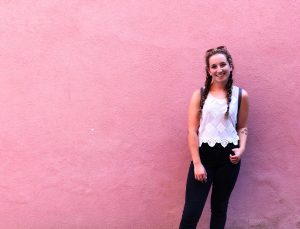Fall 2024 student Audrey Davies, a junior at Duke University studying computer science and finance, talks to Dr. Bart about her semester at Syracuse Strasbourg.
Dr. Bart: Why did you decide to study in Strasbourg?
Audrey: I’ve been studying French since high school and knew that I wanted to study abroad in France and speak French. The programs available to me were Duke’s program in Paris and Syracuse’s in Strasbourg. I knew it would be hard to really learn French and meet locals in Paris as it is such a big, cosmopolitan city, so Syracuse in Strasbourg was the most feasible option for my goals.
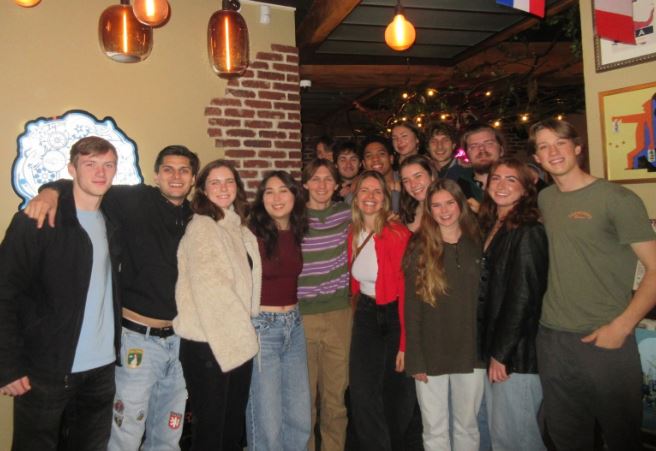
Dr. Bart: So how did the semester go?
Audrey: Academically speaking, my semester was great. I welcomed the break from my usual STEM heavy course load at Duke by taking two French classes, an art history class, and a communications class. One of my French classes was at IIEF, a French language institute connected to the University of Strasbourg. My decision to take classes at the university really made the experience for me, as I was in a class of mostly immigrants from countries such as Turkey, Iran, and Ukraine. The only common language we all had was French, which meant I couldn’t ask questions or explain a concept in English the way you can in foreign language classes in America where everyone speaks English. Thanks to my IIEF class I elevated my French throughout the semester and interacted with people I never would’ve interacted with before.
Dr. Bart: Did you enjoy the homestay experience?
Audrey: I personally had a great homestay experience. I consider myself really lucky because I genuinely had no issues whatsoever with my host family and it ended up being very additive to my overall study abroad experience. I lived with just a grandma in an apartment in the city, but she has two granddaughters who are 20 and 22 who often dropped by. Having French people my age around helped me tremendously, as they taught me more “spoken” French and slang that young people use that I would hear at bars and around town. This complemented the more formal French I learned in the classroom. My host grandma enjoyed how much I talked to her and her family and made an effort to learn the language and indulge in their culture (eat traditional Alsatian meals that she cooked, visit neighboring villages, etc.). I ended up becoming good friends with both granddaughters as well as my host grandma, and we’ve kept in touch! I recommend the homestay experience if you are committing to learning and speaking French. The thing my host family appreciated most was the effort I made. If you are not willing or prepared to make an effort, you will have a different experience.
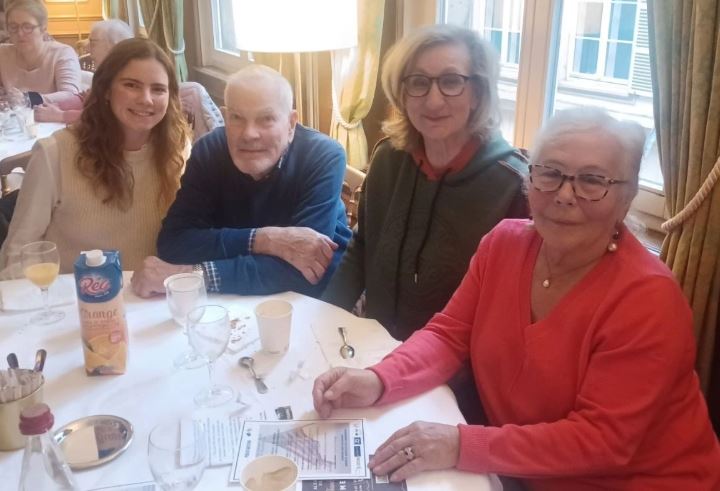
Dr. Bart: What did you do with your free time in Strasbourg?
Audrey: Most of my free time was spent traveling and socializing. During the semester, I split my time evenly between Strasbourg and traveling to other cities. This was partly because of my goal to learn as much French as possible and partly because I ended up liking Strasbourg a lot more than I expected and since my host family was great, I felt comfortable staying during the weekend. On a typical weekday I’d go to class and depending on if my host family was home, I’d go home for lunch and hang out with them or get lunch with friends. I’d always have dinner at home with my grandma and after dinner would see my friends from Syracuse. Some other fun things we all did in Strasbourg included going to hockey and soccer games, watching NFL on Sundays at La Brasserie Meteor, shopping, walking around the Christmas markets, exploring nearby towns such as Molsheim, Hindisheim, and Colmar, and participating in weekend activities planned by Syracuse.
Dr. Bart: How would you describe Strasbourg to someone who’s never been there?
Audrey: Coming from a big city like Atlanta, Strasbourg felt small, but in a good way. Everything is accessible by foot or public transportation, and the large student population from the University of Strasbourg made the city feel almost like a college town but with the amenities of a city such as professional sports teams and lots of bars, clubs, and restaurants. The level of English is not high like in Paris, so it definitely felt very authentically French. A pro of being a smaller city is that there aren’t a ton of Americans there, meaning we were more of a “novelty” to the locals and thus we found everyone was pretty nice and welcoming, differing from the stereotypes of French people stemming from Parisians. Being so close to Germany with a uniquely French and German history, there are a lot of German influences in the food, architecture, and language.
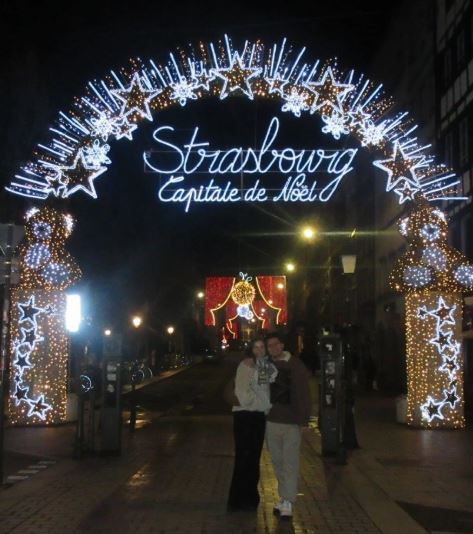
Dr. Bart: Do you have any advice for future Syracuse Abroad students, to get the most out of their time in Strasbourg?
Audrey: My advice for future students would be to make an effort to learn French as it is much appreciated by the locals and will you get you super far if you are staying with a host family, say yes to everything and put yourself out there, and don’t travel so much that you forget to explore your home city or the neighboring towns around it because Alsace is such a cool place. Most importantly: have a good attitude. In a four month abroad experience, not every day is going to be amazing and some things are going to take more effort than you’d like, but that’s part of having an authentic experience:
- Learn the language – When I led with French, even though people could immediately tell I wasn’t French, they’d almost always go out of their way to accommodate me or go the extra mile.
- Put yourself out there/say yes to everything – Some of the highlights of my semester were times I spent all together with my host cousins and our friends. This “friendship crossover” wouldn’t have been possible if I didn’t put myself out there and make an effort to hang out with them. The closer to my host family I got, the more things they invited me to do such as visit their home in a nearby village for raclette or go to birthday dinners or to an election watch party. I’m so glad I said yes to all of these opportunities even though I was insecure about my French because situations like these are how I improved as a speaker while soaking up French culture.
- Some places I loved in Strasbourg: Brasseries: Happy Hours, Public House, Place de Marché Gayot, Le Meteor / Restaurants: La Corde à Linge, Le Tonneau / Quick food: Patisserie Gerber, Au Wegele, Sushido.


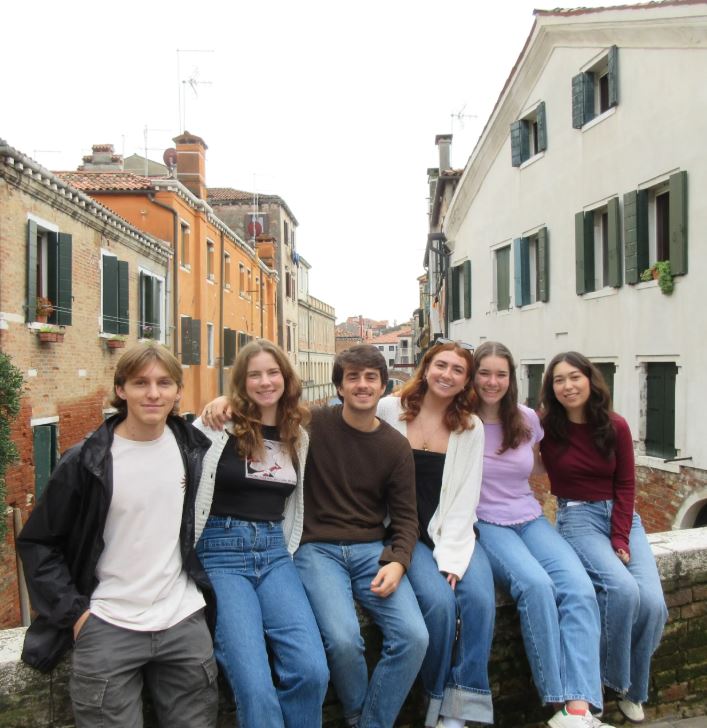
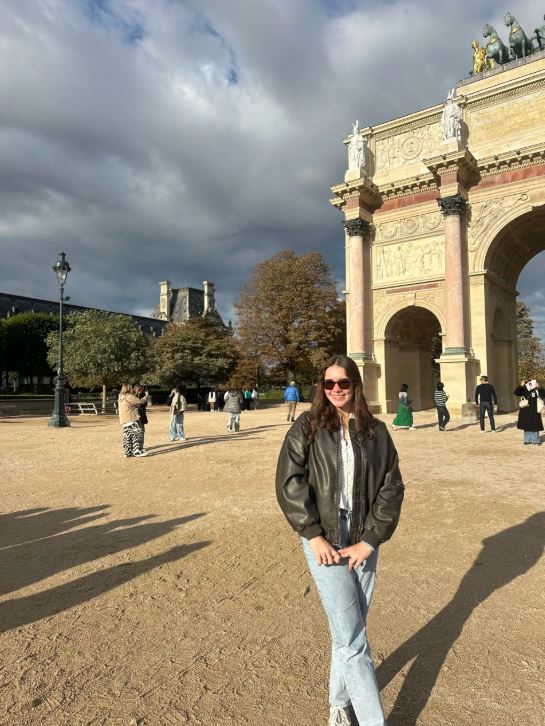
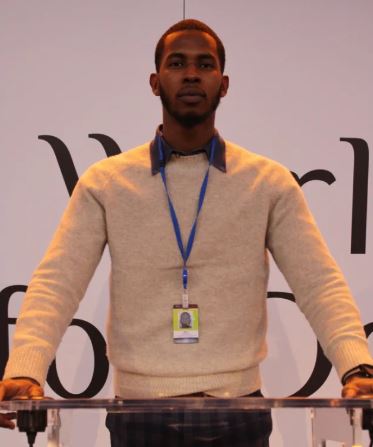
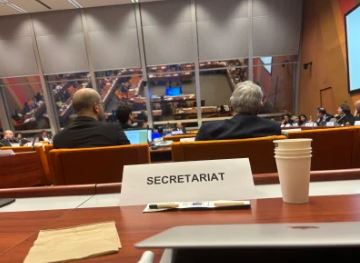
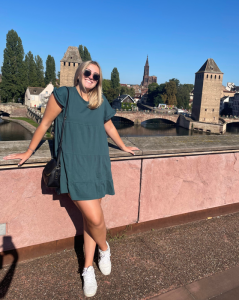 My name is Katie Blomkvist and I studied abroad in Strasbourg, France in the fall 2021. I am majoring in Public Health and Policy Studies and am graduating in Spring 2023. During my time in Strasbourg, I was an intern at the Council of Europe International Co-operation Group on Drugs and Addictions.
My name is Katie Blomkvist and I studied abroad in Strasbourg, France in the fall 2021. I am majoring in Public Health and Policy Studies and am graduating in Spring 2023. During my time in Strasbourg, I was an intern at the Council of Europe International Co-operation Group on Drugs and Addictions.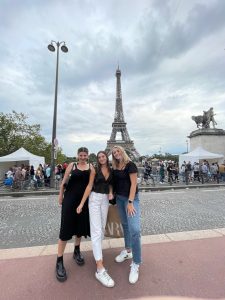 The Strasbourg Center had organized trips and activities for us to attend through the entire semester. With the school, I visited nine museums in Paris, dozens of waterfalls from glaciers throughout Switzerland, and Alsatian vineyards in the country. Partaking in these activities and trips was a way to connect with the other students in the program and to experience new cultures. On these trips, we were able to try traditional foods and drinks of the areas we visited. Eating crepes in Paris, fondue in Switzerland, and wine in the Alsatian vineyards was such a fun and unique experience!
The Strasbourg Center had organized trips and activities for us to attend through the entire semester. With the school, I visited nine museums in Paris, dozens of waterfalls from glaciers throughout Switzerland, and Alsatian vineyards in the country. Partaking in these activities and trips was a way to connect with the other students in the program and to experience new cultures. On these trips, we were able to try traditional foods and drinks of the areas we visited. Eating crepes in Paris, fondue in Switzerland, and wine in the Alsatian vineyards was such a fun and unique experience!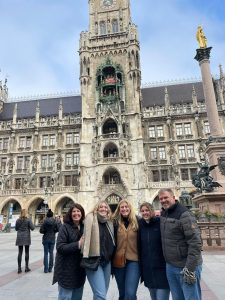 In Strasbourg, all students live with a host family. In my family, I lived with my two host parents, Isabelle and Jerome. They have three children who are grown and out of the house but come to visit frequently. I had a very positive experience with my family. They helped me to improve my French and made me feel at home even when family was so far away. We would eat dinner together every weeknight and talk about how our day went. My parents and sisters came to visit me while I was away, and Isabelle and Jerome invited them to come over for dinner because they wanted to meet them. They were very kind and welcoming! My host family lived very close to a bus stop that I would take to school every day. The public transportation in Strasbourg, although intimidating at first, is very easy to use. There are buses and trams that you can take within the city and out to the suburbs as well.
In Strasbourg, all students live with a host family. In my family, I lived with my two host parents, Isabelle and Jerome. They have three children who are grown and out of the house but come to visit frequently. I had a very positive experience with my family. They helped me to improve my French and made me feel at home even when family was so far away. We would eat dinner together every weeknight and talk about how our day went. My parents and sisters came to visit me while I was away, and Isabelle and Jerome invited them to come over for dinner because they wanted to meet them. They were very kind and welcoming! My host family lived very close to a bus stop that I would take to school every day. The public transportation in Strasbourg, although intimidating at first, is very easy to use. There are buses and trams that you can take within the city and out to the suburbs as well. Bonjour! My name is Eva Kamman and I’m a junior here at Syracuse studying environmental engineering. I studied abroad in the fall of 2018 at the Syracuse Center in Strasbourg, France. I chose this program for two main reasons. The first is that my family is French so being able to live there made me feel much closer to those relatives. In fact, in a weird way, it kind of felt like going home. The second was that I was able to take classes both at the Syracuse Center and at l’
Bonjour! My name is Eva Kamman and I’m a junior here at Syracuse studying environmental engineering. I studied abroad in the fall of 2018 at the Syracuse Center in Strasbourg, France. I chose this program for two main reasons. The first is that my family is French so being able to live there made me feel much closer to those relatives. In fact, in a weird way, it kind of felt like going home. The second was that I was able to take classes both at the Syracuse Center and at l’